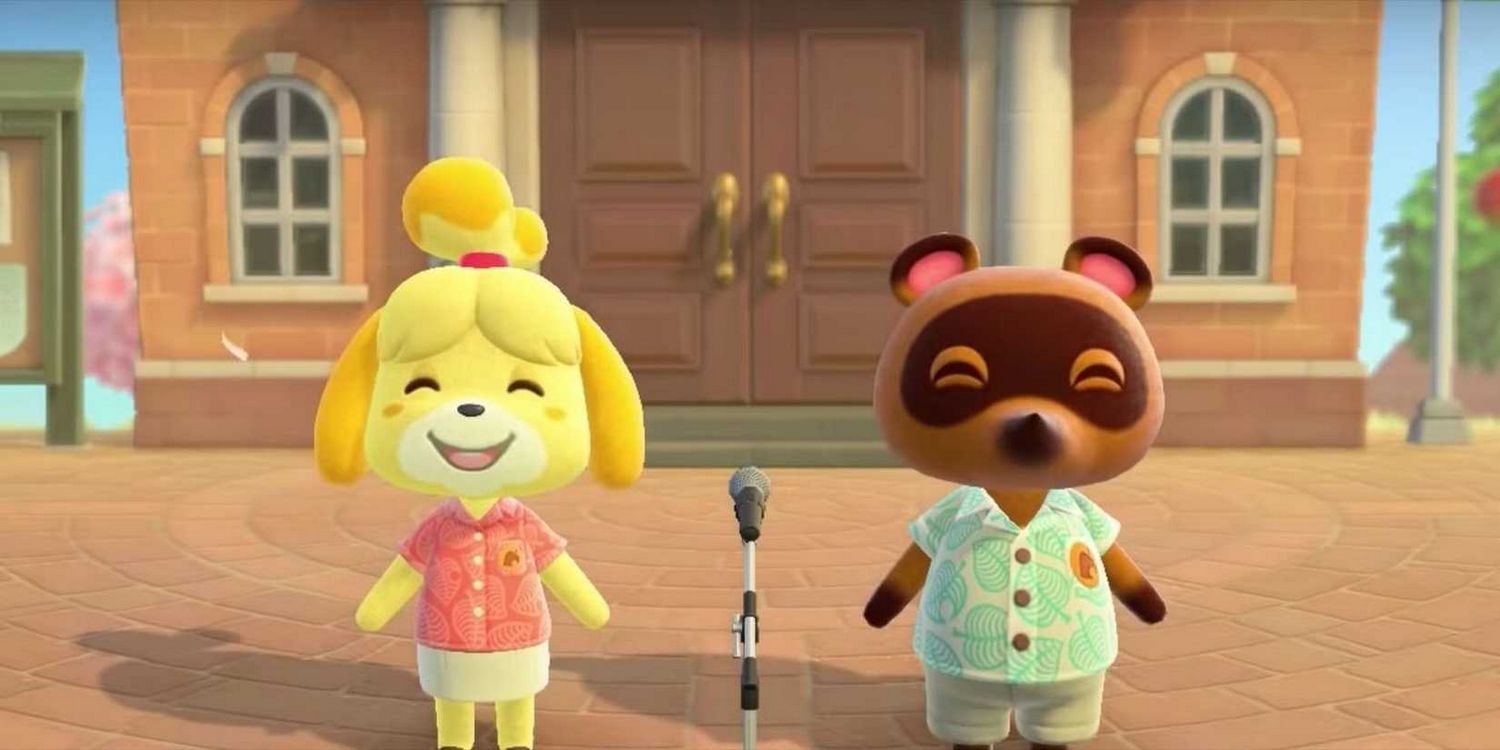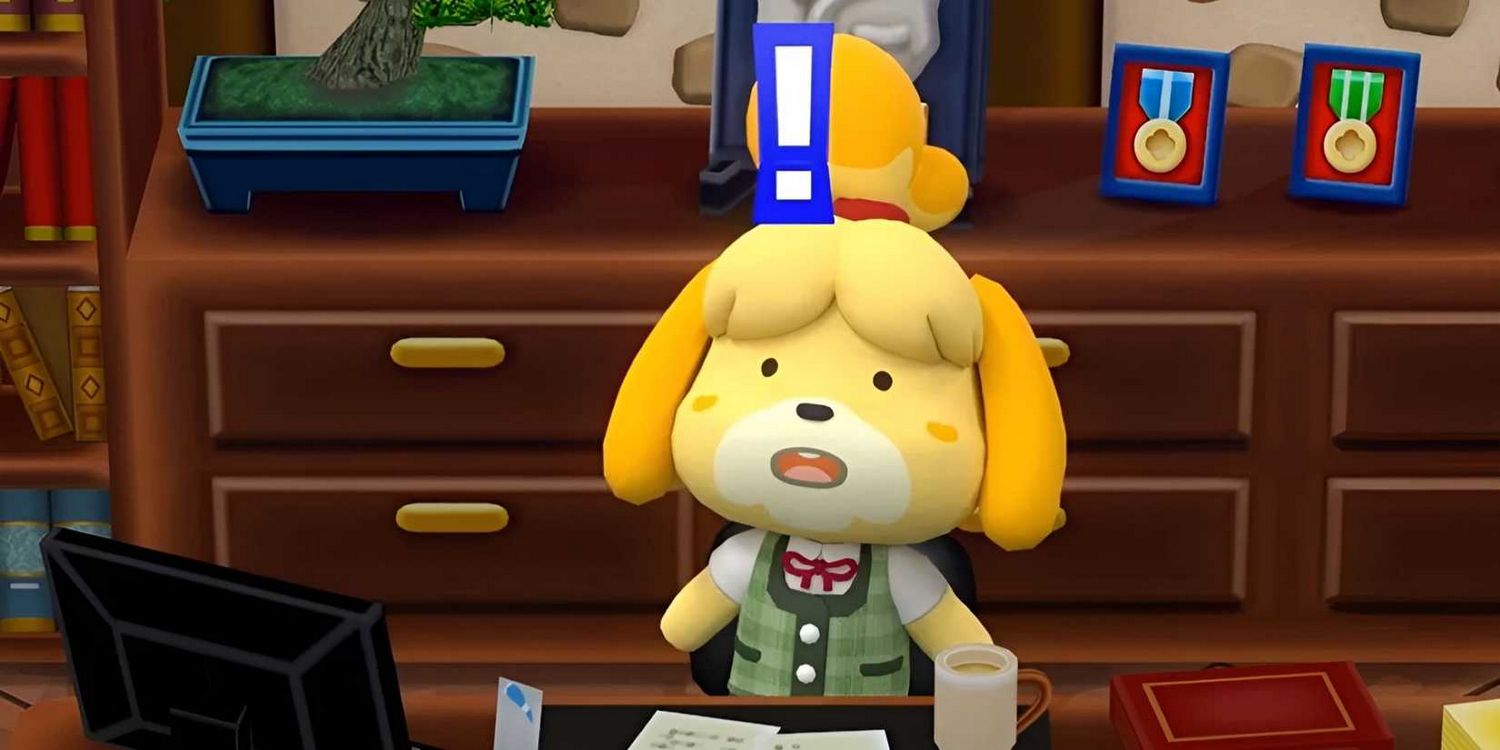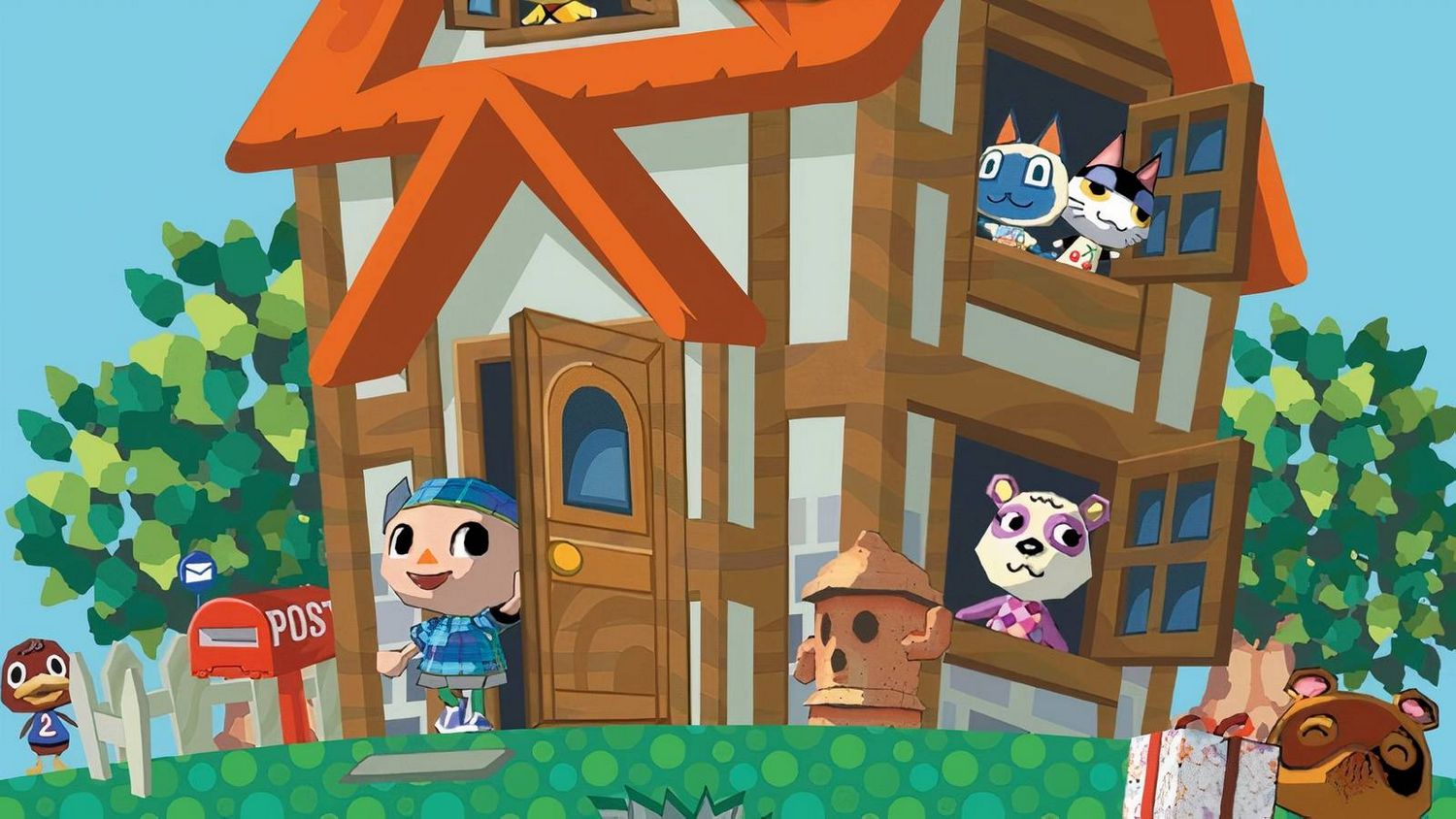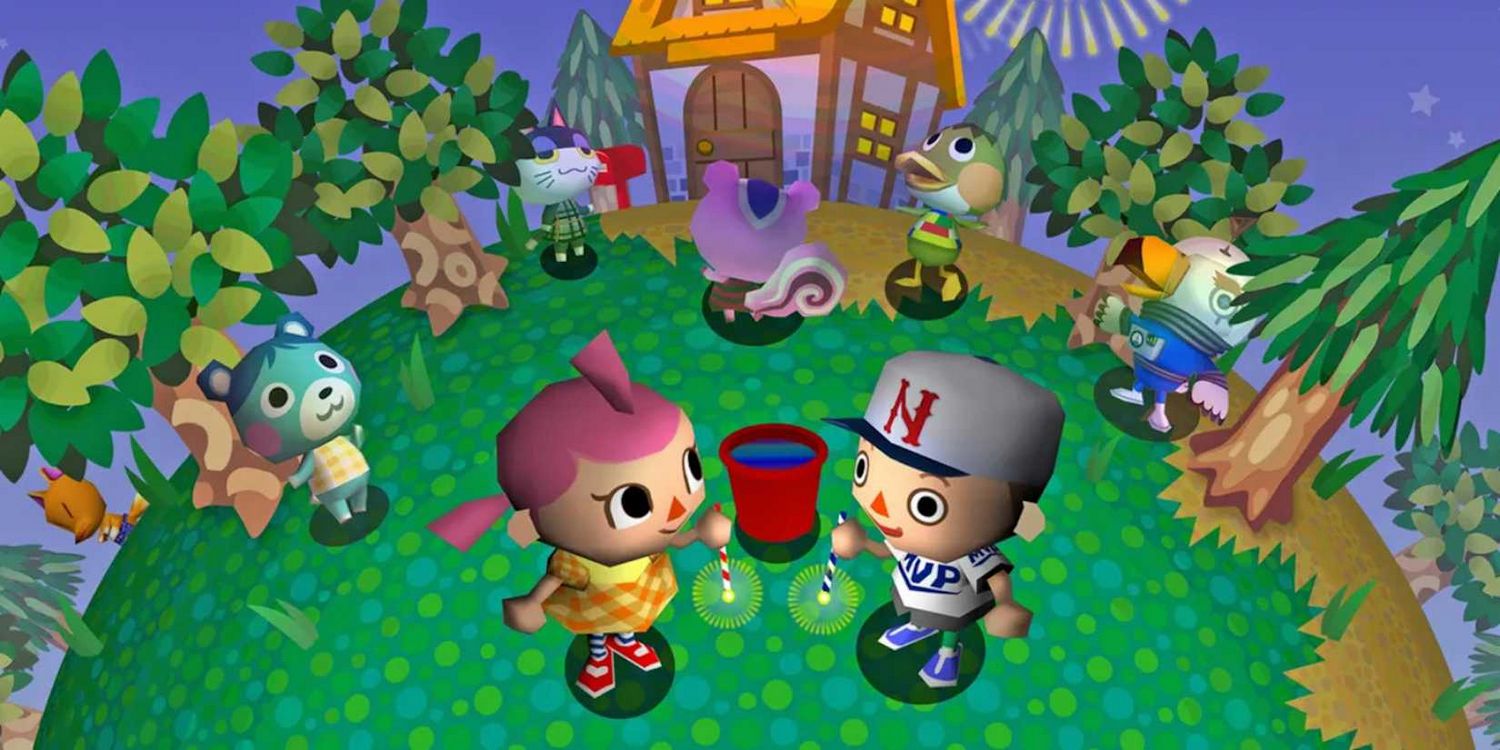A Deeper Look: The Alternate Title That Could Have Changed Animal Crossing Forever
Popular Now
 Geometry Dash
Geometry Dash
 EA SPORT FC 25
EA SPORT FC 25
 League of Legends
League of Legends
 Free Fire
Free Fire
 NBA 2K24
NBA 2K24
 God of War Ragnarök
God of War Ragnarök
 Schedule I
Schedule I
 Fall Guys
Fall Guys
 Warframe
Warframe
 Toca Boca World
Toca Boca World
 In the vast world of video game history, there are countless what-if scenarios that could have dramatically altered a beloved franchise. One such revelation has recently surfaced concerning the development of Nintendo’s iconic social simulation series, Animal Crossing. While the game’s Japanese title, Dōbutsu no Mori, translates to “Animal Forest,” the Western localization process almost landed on a completely different name that would have changed the game’s identity for millions of players. This behind-the-scenes tidbit provides a fascinating glimpse into the meticulous and often challenging process of game localization and marketing, a critical aspect of the global gaming industry.
In the vast world of video game history, there are countless what-if scenarios that could have dramatically altered a beloved franchise. One such revelation has recently surfaced concerning the development of Nintendo’s iconic social simulation series, Animal Crossing. While the game’s Japanese title, Dōbutsu no Mori, translates to “Animal Forest,” the Western localization process almost landed on a completely different name that would have changed the game’s identity for millions of players. This behind-the-scenes tidbit provides a fascinating glimpse into the meticulous and often challenging process of game localization and marketing, a critical aspect of the global gaming industry.
The story comes from a recent exclusive interview with Leslie Swan, a former Nintendo localization manager, who was instrumental in bringing Animal Crossing to Western audiences. According to Swan, the team went through a rigorous brainstorming process to find a title that would resonate with an English-speaking audience while capturing the essence of the game. It was during this period that a contender emerged and gained significant support from the development team: Animal Acres. Swan’s personal favorite, this name was pitched because the town’s grid-based layout reminded the team of “acres” of land, a fitting metaphor for the game’s focus on building and cultivating a personal space. However, this seemingly perfect name was ultimately rejected by Nintendo’s legal department due to potential trademark issues. The decision highlights the complex legal and commercial considerations that often override creative preferences in the video game development pipeline.
 The Importance of a Great Game Title for SEO and Brand Identity
The Importance of a Great Game Title for SEO and Brand Identity
For any game, especially a new release, the title is more than just a name; it is the cornerstone of its brand identity and a critical component of its SEO strategy. A memorable, catchy, and descriptive title can significantly influence a game’s success in the crowded digital marketplace. In the case of Animal Crossing, the chosen name perfectly encapsulated the core loop of interacting with a community of anthropomorphic animals. This simple yet effective title has become a powerful brand in its own right, synonymous with a cozy, creative, and community-driven gaming experience. The rejected name, Animal Acres, while thematically sound, may not have had the same broad appeal or memorability, a testament to the fact that even minor details can have a major impact on a game’s legacy. For those in digital marketing and SEO consulting, this case study serves as a valuable lesson in the power of branding and the importance of thorough market research.
 From Dungeons to Daily Life: The Evolution of Animal Crossing
From Dungeons to Daily Life: The Evolution of Animal Crossing
The story of the title change is just one chapter in the fascinating development history of Animal Crossing. Originally conceived as a dungeon-crawling RPG for the Nintendo 64DD, the game’s early concepts were a far cry from the peaceful life simulator we know today. The game was initially envisioned as an adventure where a powerless human character would navigate dungeons by commanding a party of animal companions. This early focus on combat and exploration was a direct result of the influence of other popular Nintendo titles and the hardware capabilities of the time. However, due to the 64DD’s commercial struggles and the creative vision of co-director Katsuya Eguchi, the game pivoted to become a non-linear life simulator. This shift was motivated by Eguchi’s personal experience of loneliness after moving to Kyoto for work, leading him to create a game centered on the themes of family, friendship, and community. This foundational change in design philosophy is what truly defined the series and set it on its path to becoming a global phenomenon.
 The Enduring Appeal of Animal Crossing’s Core Gameplay
The Enduring Appeal of Animal Crossing’s Core Gameplay
Despite its humble beginnings and the significant changes it underwent, Animal Crossing has maintained a remarkable consistency in its core gameplay loop. The series continues to revolve around the player’s life in a village or on an island inhabited by a diverse cast of characters. From the real-time clock and seasonal events to the simple, meditative tasks of fishing, bug catching, and collecting items, the game offers a unique blend of casual gaming and long-term engagement. The game’s success lies in its ability to provide a relaxing escape, a parallel world where players can set their own goals, express their creativity, and connect with others. The most recent title, Animal Crossing: New Horizons, took this concept to new heights, offering unprecedented levels of customization and community engagement. The game’s incredible sales and cultural impact are a testament to the enduring appeal of its core design, a vision that was forged from a desire to recreate a feeling of home and connection.
While Animal Acres may have been a plausible alternative, the name Animal Crossing perfectly captures the spirit of community and the journey of building a new life. It’s a reminder that a title is not just a label but a reflection of a game’s soul, and in this case, the perfect name was ultimately chosen. The history of Animal Crossing is a masterclass in creative evolution, from a discarded RPG concept to a global icon, proving that sometimes, the greatest successes come from a willingness to change and a deep understanding of what truly resonates with players.
- CPC (Cost Per Click) Keywords: Nintendo Switch, new release, best casual games, game reviews, video game development, game localization, digital marketing, SEO consulting.
- Relevant Long-Tail Keywords: Animal Crossing development history, Animal Crossing New Horizons update, best social simulation games on Switch, how to get more bells in Animal Crossing, Nintendo game secrets and trivia, Animal Crossing beta content, Nintendo localization process.










